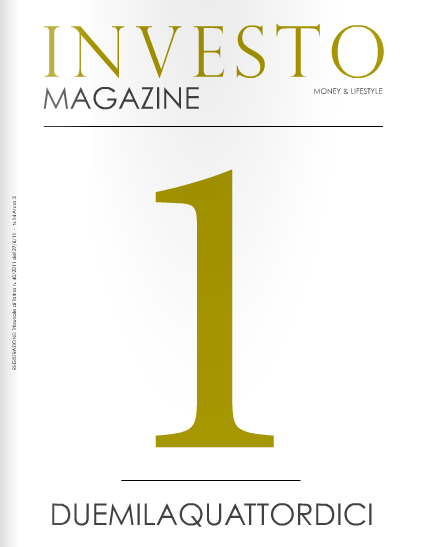A Berlino nell’arco del 2012 sono nate 44.228 startup attive nell’economia digitale, un comparto che nel 2011 ha generato un fatturato di quasi 9 miliardi e creato 62.400 posti di lavoro. Se si considera l’intero settore della comunicazione e dell’informazione (anche non digitale) il fatturato supera ampiamente i 10 miliardi[1]. Il 44% dei founders di startup a Berlino è straniero, segno che la città attrae un gran numero di giovani imprenditori da tutto il mondo. Perchè?
Vi è certamente una serie di condizioni favorevoli preesistenti che hanno dato il la all’esplosione della startup economy cittadina, tra cui l’ormai celebre livello dei prezzi immobiliari, che permette di trovare locali ed avviare un’attività anche con pochi mezzi. La più grande ricchezza di Berlino è però quello che suole un po’ brutalmente definirsi “capitale umano”, ossia la generazione di giovani sfornata da università ed altre istituzioni di educazione superiore presenti in città, dotata di un’eccellente preparazione in informatica, IT ed economia, ma soprattutto internazionale (su un totale di 160.000 nuovi iscritti all’università[2] nel 2012/13, poco meno di 30.000 erano stranieri). E poi c’è un’infrastruttura ideale, fatta di mezzi di comunicazione e di trasporto efficientissimi ed economici, servizi di ogni genere per le piccole imprese (coworking spaces, acceleratori, incubatori, scuole di management, servizi di coaching per founders etc.).
Anche il governo – nazionale e locale – ha i suoi meriti: a livello nazionale si è intervenuti con alcune (poche, per la verità) innovazioni legislative, prima fra tutte l’ormai ben collaudata introduzione nel 2008 delle srl con capitale di 1€ (Unternehmergesellschaft – UG), che si costituiscono in pochi semplici passi e con un esborso minimo in termini di onorari notarili e imposte varie[3]. E poi c’è la mastodontica Agentur für Arbeit (equipararla ai centri per l’impiego italiani sarebbe riduttivo), che nell’ambito delle sue molteplici attività di ente pubblico di collocamento ed assistenza sociale prevede tra l’altro anche delle apposite indennità di avviamento[4] cui ha diritto di accedere ogni giovane imprenditore dotato di un business plan credibile, che nelle fasi iniziali della propria attività ancora non produce reddito. A Berlino c’è inoltre la IBB[5], il fondo d’investimento della città, che offre una serie di possibilità per ottenere finanziamenti, investimenti o più semplicemente assistenza ed aiuto. Naturalmente, date tali condizioni, anche gli investitori privati non hanno tardato a farsi avanti, dando ulteriore slancio ad un “ecosistema” economico e culturale che ha generato o attratto anche players globali, come Zalando, Spotify, Soundcloud o, da ultimo, Yandex.
AUTORE VITTORIO DE VECCHI LAJOLO
[1] Dati dell’assessorato economia, tecnologia e ricerca (Senat für Wirtschaft, Technologie und Forschung)
[2] Università ed altre scuole di formazione superiore, dati tratti da Statistisches Jahrbuch Berlin 2013.
[3] Fino al marzo 2013 era previsto una sostanziale esenzione dalla tassazione di dividendi e plusvalenze per le società di capitali che detenevano partecipazioni anche minime in altre società di capitali. Tale sgravio è stato cassato dalla Corte di Giustizia UE (v. C-284/09) ed è pertanto rimasto solo a favore di partecipazioni sopra il 10% (e sotto il 25%, soglia oltre la quale è applicabile la direttiva 90/435/CE).
[4] Il Gründungszuschuss, v. sul sito della Agentur für Arbeit.
[5] Investitionsbank Berlin, www.ibb.de.
In Berlin 44.228 startups have been set up in 2012 in the digital economy, a sector that has generated 9 billion in turnover and created 62.400 jobs in 2011. Take the whole communication and information branch (also offline) and the turnover exceeds 10 billion [1]. 44% of the founders in Berlin are foreigners, revealing that the city attracts a large number of young entrepreneurs from all over the world. Why?
There are definitely some pre-existent conditions that gave a decisive boost to Berlin’s startup economy, such as well-known low real estate prices and hence the possibility to rent offices and set up a business with little money. However, Berlin’s greatest asset are human resources: a young generation of people that have been educated in one of the city’s universities and other higher education institutions, and have an excellent preparation in informatics, IT and economy, and on top of that are international (out of 160.000 university[2] enrollers in 2012/13, almost 30.000 came from abroad). Moreover, there is a highly efficient infrastructure consisting of inexpensive means of transport and communication, all kind of services for small business (coworking spaces, accelerators, incubators, management school, founder coaching services, etc.).
National and local governments have played their role, too. On a national level, some (a few, actually) legislative innovations have been implemented, such as the introduction of 1€ capital Ltd. companies (Unternehmergesellschaft – UG) in 2008, that have proven very successful so far. They are easy to set up and require a minimum outlay in terms of notary’s fees and taxes[3]. Furthermore, the almighty Agentur für Arbeit (it would be reductive to compare it to the Italian Unemployment Centres) as a public authority provides, amongst employment services and social security, even a specific subsidy[4] to young entrepreneurs holding a good business plan but no income during the early stages of their business. In Berlin there is also the IBB[5], the city’s investment fund, which offers different programs to obtain funding, investments or simply assistance and help. Given said conditions of course private investors did not hesitate to come forward, giving an additional boost to an economic and social “ecosystem” that has been able to give birth to or attract even global players, such as Zalando, Spotify, Soundcloud or, more recently, Yandex.
WRITER VITTORIO DE VECCHI LAJOLO
[1] Data of the Berlin State Cabinet for economy, technology and research (Senat für Wirtschaft, Technologie und Forschung)
[2] Universities and other higher education institutions, data from Statistisches Jahrbuch Berlin 2013.
[3] Until March 2013 German law provided a substantial exemption from taxation of dividends and capital gains of corporations owning even a small share in other corporations. The EU Court of Justice (v. C-284/09) eventually overruled the tax break, which survived only for shares above 10% (and under the minimum threshold for the application of the directive 90/435/CE of 25%).
[4] The Gründerzuschuss, see on the Agentur für Arbeit’s website.
[5] Investitionsbank Berlin, www.ibb.de.
» 2014, 2014 – Numero 2, Investo Startup » Perché Berlino? fattori del successo dell’ecosistema...






 youhost
youhost